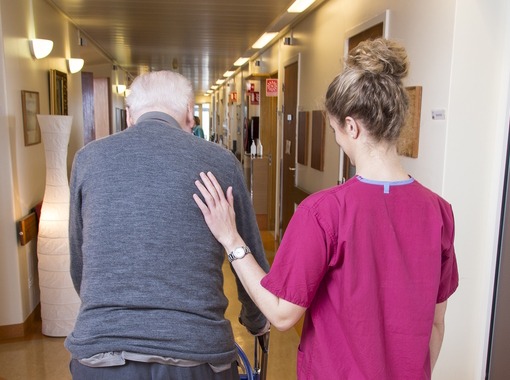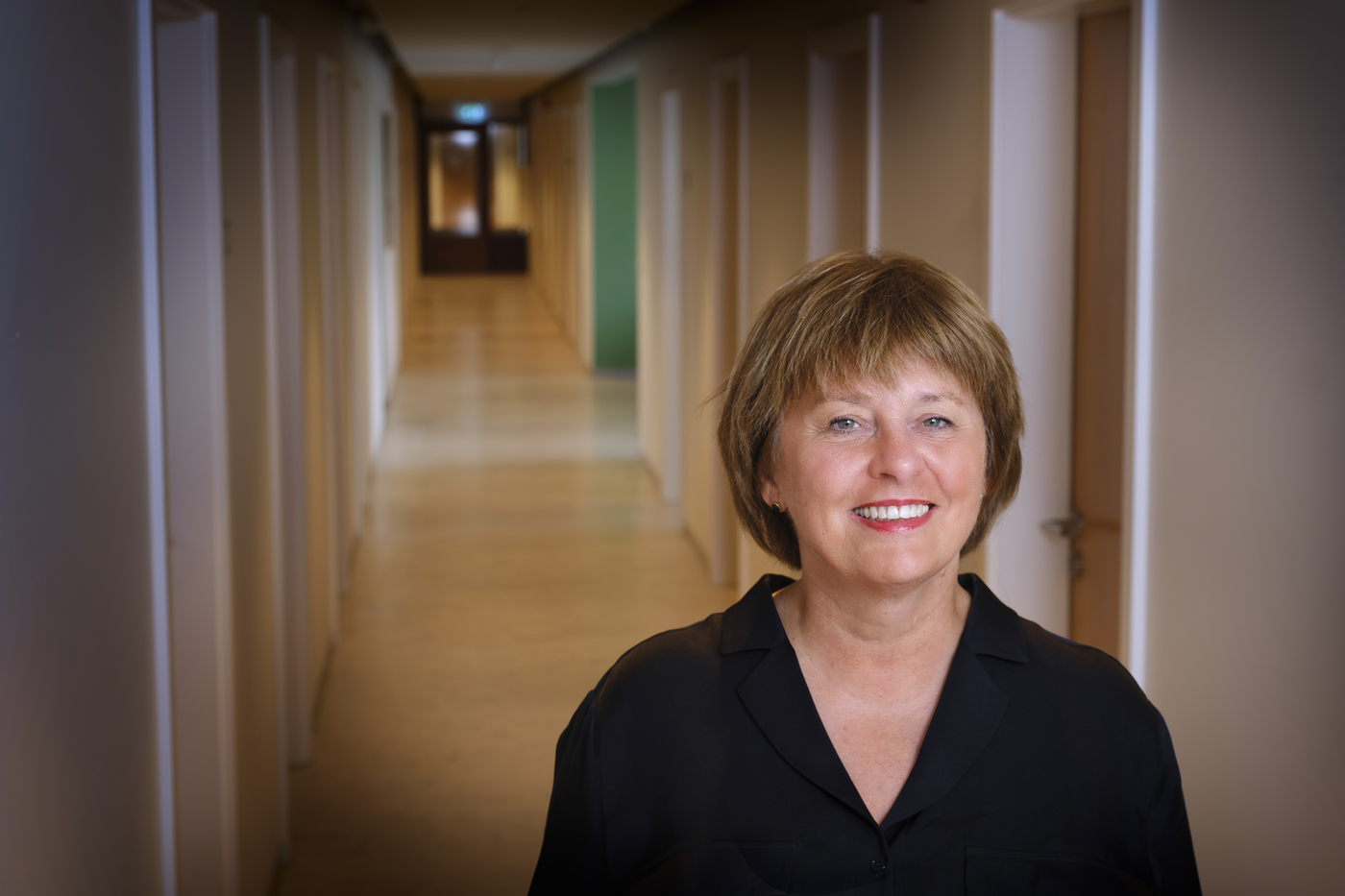People living longer and the growing number of the elderly carries various challenges, not only for social systems, but also for the families and friends of older individuals. An interdisciplinary group in health- and social sciences is currently working on a study analysing the factors that cause the most stress for individuals taking care of elderly family members who also receive residential care, in order to increase support for this group, that is constantly getting larger.
"In most countries people are encouraged to continue living in their homes despite decreased capacity to take care of themselves and various complicated health issues and changes brought on by old age. The authorities have realised that this policy means that a lot of work has been transferred to these individuals and their families, which can lead to various kinds of pressure and stress," says Kristín Björnsdóttir, project leader and professor of nursing and chair of the board of the University of Iceland, and Landspítali University Hospital research centre for gerontology (RHLÖ).
Care can be very stressful
Kristín points out that this new reality demands that researchers in the field of gerontology focus increasingly on both the well-being and circumstances of the elderly who live in their own homes, and the family members that take care of them. "International research shows that even though it can be rewarding for the care takers in many ways it can be stressful to take care of the elderly, both demanding physical labour, emotional difficulties and financial challenges. This is why we want to map out the caretakers' situation, in order to identify the most significant challenges they face, in order to react with increased support," says Kristín.
When asked Kristín says that she has for a long time been interested in developing ways to support people to live as long as possible in their own homes. "I am interested in studying integration and I believe that good collaboration is key. It is thus vital to analyse how the service is organised and how we can use technology for enrichment and facilitation, for users and caretakers and staff," she explains.
According to Kristín the gathering of research data is conducted in collaboration with Reykjavík's Residential Care. "All those who are 65 or older and have home support are asked to take part in the study. Those who agree are asked to name two caretakers, if they have them, and sign an informed consent for participation. This includes authorisation to contact the caretakers and that the results of their health and well-being evaluation be compared to the existing InterRAI Home Care Assessment of the individual who receives residential care," says Kristín, but all those who accept residential care have already undergone InterRAI-HC holistic geriatric evaluation.

Use an international tool to measure the health of caregivers
Working on such research Kristín and her colleagues had the idea for this study; to develop ways to identify the caretakers that need more extensive support from public systems and, furthermore, provide an instrument to evaluate conditions and well being. "We chose to work with scientists affiliated with the InterRAI collaborative network that has developed numerous instruments to evaluate conditions, health and well-being of those who benefit form health-care using an holistic approach," says Kristín. The InterRAI network is committed to improving care for persons who are disabled or medically complex.
"The latest institute instrument is called the interRAI Self-Reported Carer Needs Assessment Form (interRAI-SCaN) and was designed to evaluate the health and needs of caregivers. The research team has translated and adapted this instrument to Icelandic circumstances. We have, furthermore, worked with an international research team in testing the measuring tool," explains Kristín and is referring to the research team working on this project. The group comprises her, Pálmi V. Jónsson, professor emeritus at the Faculty of Medicine, Ingibjörg Hjaltadóttir, professor of Nursing, Sigurveig H. Sigurðardóttir, professor of Social Work, Hrafnhildur Eymundsdóttir, project manager at RHLÖ and post-doc, Sirrý Sif Sigurlaugardóttir, doctoral student in Social Work, Inga Valgerður Kristinsdóttir and Margrét Guðnadóttir, doctoral students in Nursing, Eva Kristjánsdóttir, project manager in home nursing at Reykjavík's Residential care, John Hirdes, professor at Waterloo University in Canada, and Thor Aspelund, professor of Public Health Sciences.
Collaboration with Reykjavík's Residential Care
According to Kristín the gathering of research data is conducted in collaboration with Reykjavík's Residential Care. "All those who are 65 or older and have home support are asked to take part in the study. Those who agree are asked to name two caretakers, if they have them, and sign an informed consent for participation. This includes authorisation to contact the caretakers and that the results of their health and well-being evaluation be compared to the existing InterRAI Home Care Assessment of the individual who receives residential care," says Kristín, but all those who accept residential care have already undergone InterRAI-HC holistic geriatric evaluation.
With statistical analysis on the data gather by this instrument the researchers hope to find the factors that seem to cause the caretakers the most difficulties. "Once this part of the data analysis is completed, we will select 10-20 families with multiple needs and difficulties for a field study. It will contain thorough data acquisition on the daily life of these families and their understanding of the situation. We hope to shed light on the support and aid the participants consider they need in order to feel good," she says.
Pretesting of the interRAI Self-Reported Carer Needs (SCaN) assessment tool is now completed and it led to some modifications in its set-up and the execution of data gathering that began earlier this year. It is early days in the research so no results are available yet. "We hope that our study will add to the knowledge and understanding of the lives and well-being of caretakers and shed light on which aspects concerning the one who receives home care increases the burdens and difficulties in their lives. We also hope that the interRAI-Scan instrument will prove helpful in analysing the need for support of caretakers," concludes Kristín.




